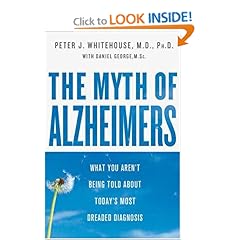
My mother has been suffering from severe headaches for two weeks. They are of the type that could indicate a stroke. So, this has me disconcerted.
We are working very hard with our doctor to get to the bottom of the problem. The verdict on the cat scan will be in soon.
Sometimes when things get on the crazy side, I go back and look at my owncaregiver stress list. More or less, give myself some advice.
Now, I 'll share my advice. Please feel free to add to my list.
One of the biggest problems faced by caregivers is depression. As a result, caregivers should take care to insure that they remain healthy and on mission. Over the years, I have referred to this list of mine many times. The list helps to put me in focus, and reminds me that I need to take care of myself. Please feel free to email this to others.
- Don’t take on more responsibility than you can handle. Learn to ask for help when you need it. Consider putting together a team of friends and relatives to share the burden. Don't go it alone.
- You need to find ways to relax and reduce stress. Consider trying: meditation, visualizing comforting or pleasant scenes, listening to music, reading, or playing games on a computer.
- Learn to make lists so you can get to the more important tasks first. Focus on one thing at a time. If you start to feel overwhelmed learn how to pass off tasks to others when they ask, "how can I help". Remember to compliment, or even congratulate, yourself when you accomplish an important task.
- Pay close attention to your own health. Eating nutritious meals and exercising is a must. Make sure you are getting enough sleep. Take care of yourself.
- You need to carve out time to do things that you enjoy. This is not only necessary for your own well-being, it will make you more effective in your caregiving effort.
- You need family, friends and loved one's you can talk to about your frustrations and successes. You need to let it come out. Learn to identify people that will willingly listen. And, I mean LISTEN.
- One of the most difficult things to do is to get educated. You can never know enough about your loved one's condition. You never know when you are going to learn something that can make a big difference. Information is empowering and brings with it the feeling that you are taking control; rather then, being controlled by an illness or the situation. Learning something new that improves your caregiving is very rewarding and empowering.
- Join a support group. In a good support group you will learn valuable lessons, get new ideas, and tips that can really make a difference. In a good support group you get to "vent" with real people that understand where you are "coming from". Most importantly, in a good support group you will learn over and over "you are not alone".
- Make sure you see your own doctor. Watch out for feelings of stress. Talk to your doctor about stress and stress reduction methods.
- Search your community for resources that are available to you. Is their a good senior center available? If so, schedule an appointment to talk with them. If you have never heard of this dial 2-1-1. If this service is available in your area they have groups of trained professionals that can get you direct to the resources you need. It's free.
- Don't hesitate to contact your local university wellness center. You might be surprised to learn that most Universities are a wealth of information and services. They might be conducting research or studies that could be beneficial to you.
Subscribe to The Alzheimer's Reading Room--via Email
 Bob DeMarco is a citizen journalist and Caregiver. Bob currently resides in Delray Beach, FL where he cares for his mother, Dorothy, who suffers from Alzheimer's disease. Bob DeMarco is a citizen journalist and Caregiver. Bob currently resides in Delray Beach, FL where he cares for his mother, Dorothy, who suffers from Alzheimer's disease. |
Follow the Alzheimer's Reading Room on Twitter
